SOUTH AFRICA SPOTLIGHT
COVID-19 Impact on Gig Workers in South Africa
In South Africa, the digital gig economy has begun to take hold in recent years as segments of unemployed and informal workers move into semi-formalized work via online platforms. In addition to creating new work opportunities, gig platforms provide a channel to understand and address the financial needs of a vulnerable and underserved population.
Gig workers in South Africa have been among those particularly hard hit by the COVID-19 pandemic and accompanying economic crisis. In the wake of this economic dislocation, it is imperative to focus on the financial health of these workers and assess how we can adapt the learnings to other regions across Africa.
As a global fintech investor committed to helping people achieve financial well-being, Flourish Ventures seeks to better understand the financial impact of the pandemic on gig workers and how their livelihoods are changing, as well as how fintechs can better serve this population. This South Africa Spotlight, in partnership with research firm 60 Decibels and local startups FlexClub and Picup, represents the second study in The Digital Hustle, our global research series. The following results highlight the financial lives, concerns, and aspirations of more than 600 gig workers in South Africa during June 2020.
Impact on Livelihoods & Well-being
South African gig workers have been hard hit by the COVID-19 pandemic.
Monthly Income Before & After the COVID-19 Lockdown
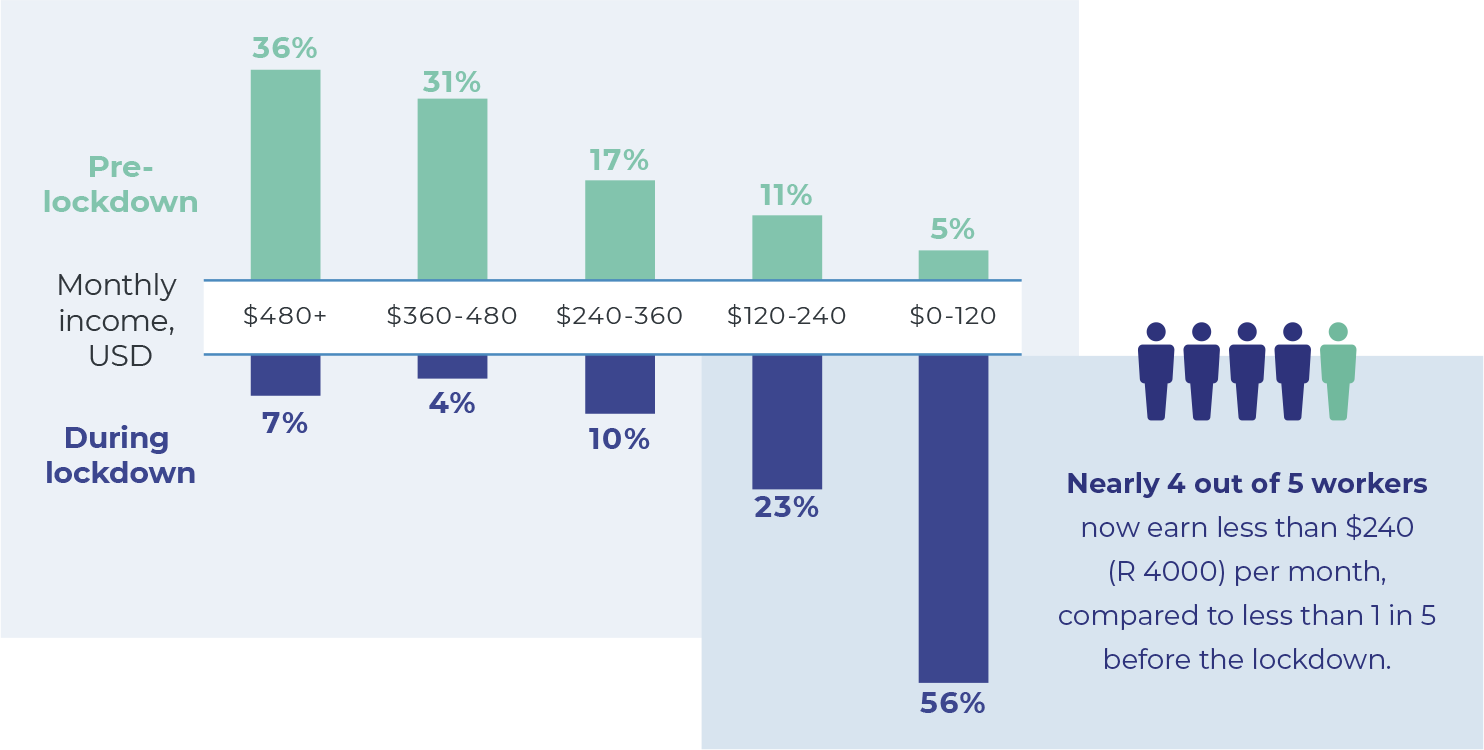

"There’s no work.
The money I used to make in one day I’m now making in seven days."
– E-hailing driver, South Africa


E-hailing Drivers Impacted Most
E-hailing services were hardest hit by the national lockdown. 82% suffered a large decrease in income, and 47% reported a large decline in quality of life.
Yet delivery workers were also hard hit. While we expected greater reliance on e-commerce and delivery during the lockdown, 57% of delivery workers still reported a large decline in income.
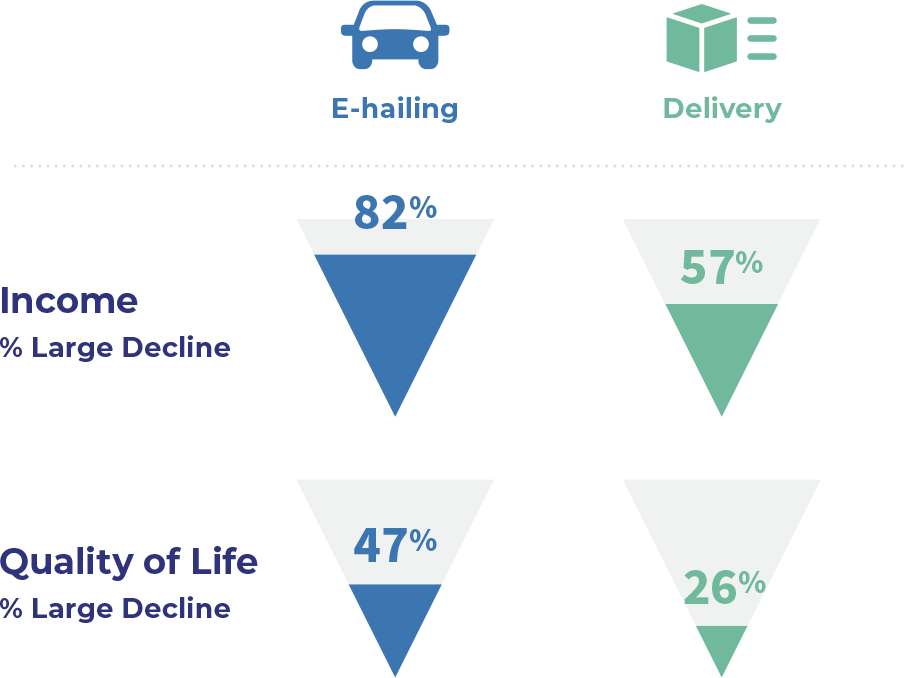

"People are not buying as they used to. The number of deliveries has dropped dramatically. It is a big challenge now."
– Delivery driver, South Africa
Financial Resilience
Some gig workers have a financial cushion, but a majority live on the edge. If they lost their main source of income, 58% of respondents reported that they could not cover household expenses for a month without borrowing money.
If you lost your main source of income, how long could you continue to cover living expenses without borrowing money?
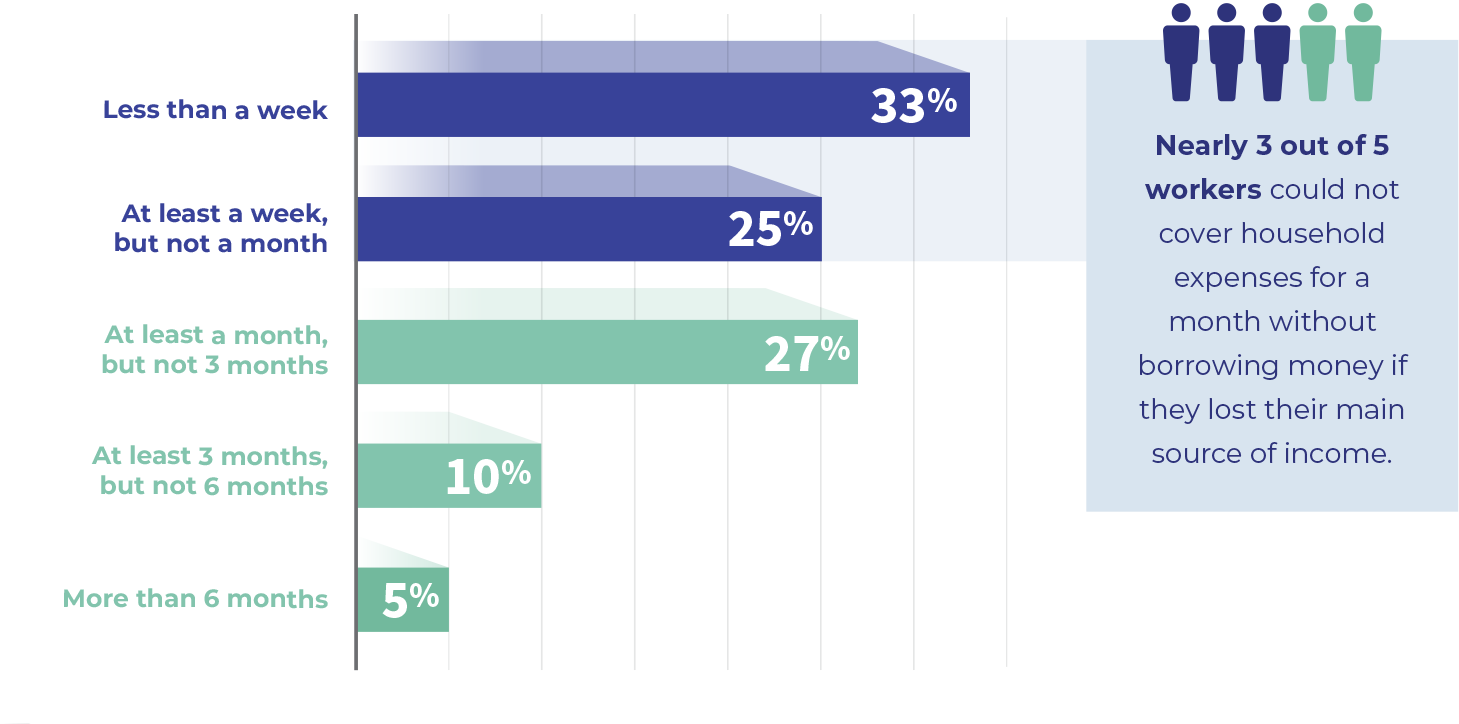



"Before lockdown I was meeting my weekly targets and was able to pay my bills and look after my family. But now I can’t. It’s devastating and I’m losing hope."
– E-hailing driver, South Africa
Coping Mechanisms
Most have made sacrifices to cope with the pandemic and accompanying economic dislocation. Over half of gig workers reduced household expenses, nearly half borrowed money, and nearly 3 out of 4 had to rely on savings. Yet only 1 in 5 are seeking additional income – a low figure possibly driven by the strictly enforced COVID-19 lockdown.
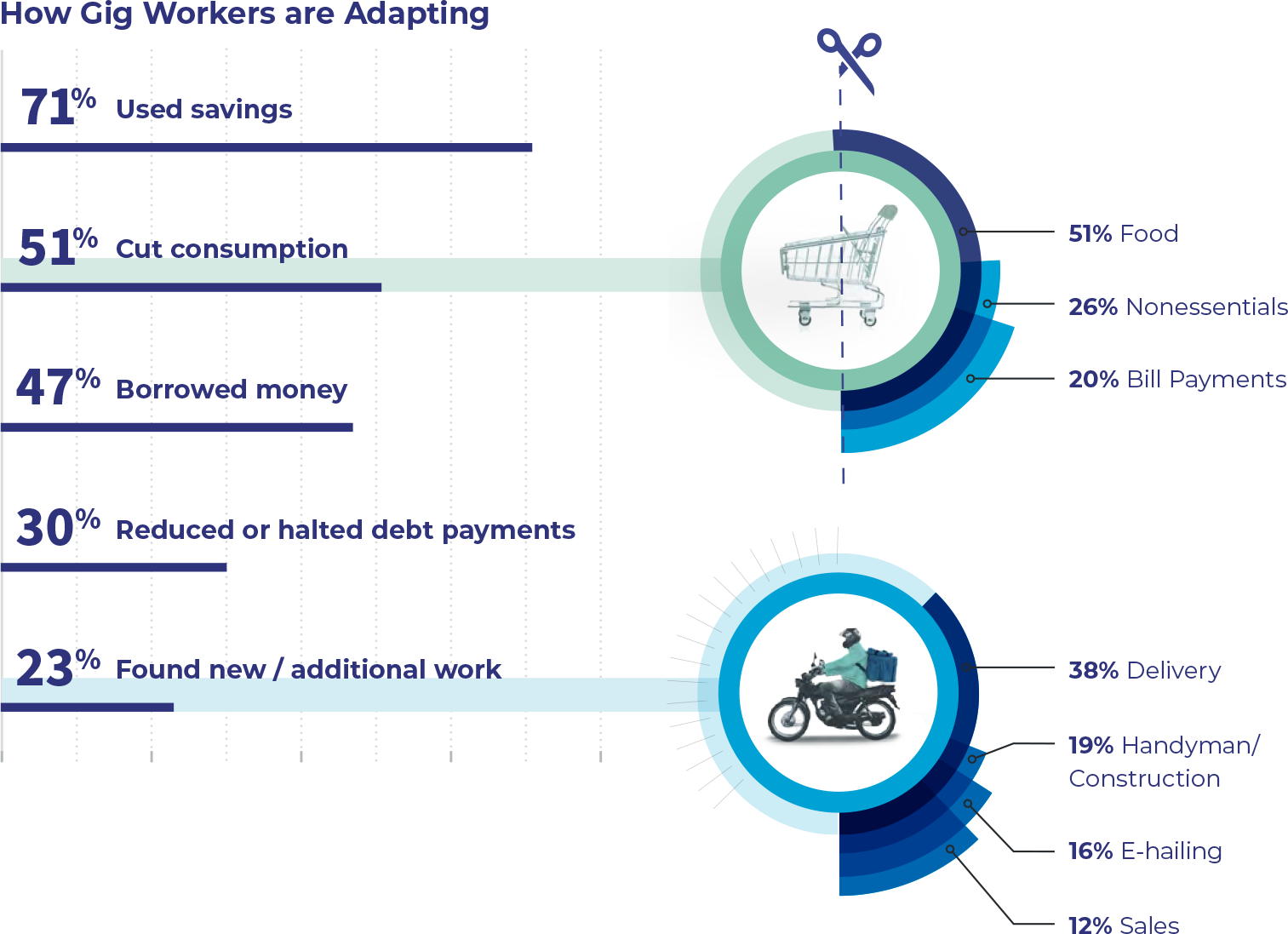

"We are only eating two meals a day. That is what we can afford now."
– E-hailing driver, South Africa
Workers’ Future Plans
As the lockdown lifts, workers are taking steps to rebuild their income. In the next 6 months, nearly all respondents plan to restart or continue work they were doing before the lockdown. The majority are concerned about the ability to earn a sustainable income. For 4 out of 5 people, health risk was not a top concern as they plan to go back to work.
"I plan to work, save, and raise money to buy a car or motorbike that I can use to earn money."
– Delivery driver, South Africa
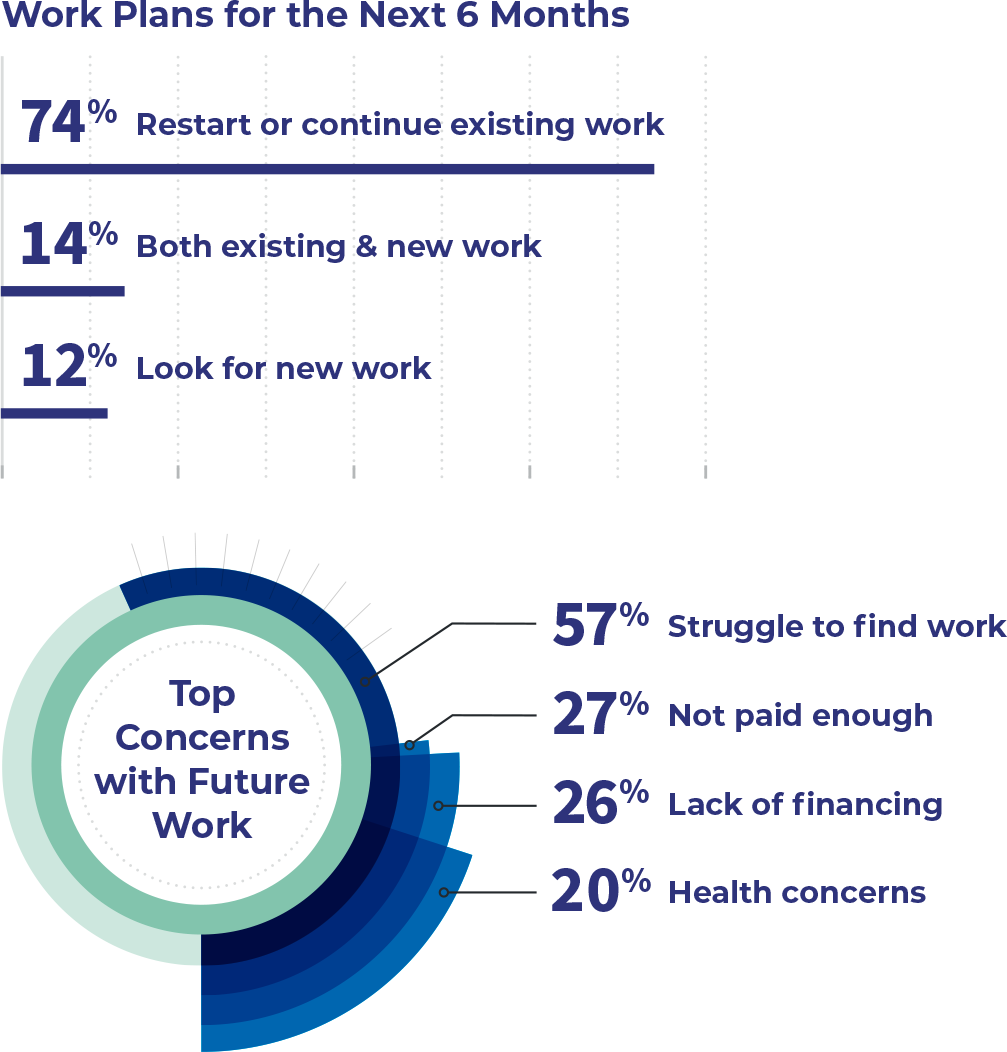
Looking Forward
Almost all have concerns about their immediate finances.
3 out of 4 respondents are very concerned about access to financing and ability to cover day-to-day cash needs.
Long-term financial planning is equally top of mind.
3 out of 4 respondents are very concerned about planning for emergencies and saving for old age.
Nearly 3 in 5 are focused on future income optimization and the need to learn new skills –especially financial planning and digital skills.
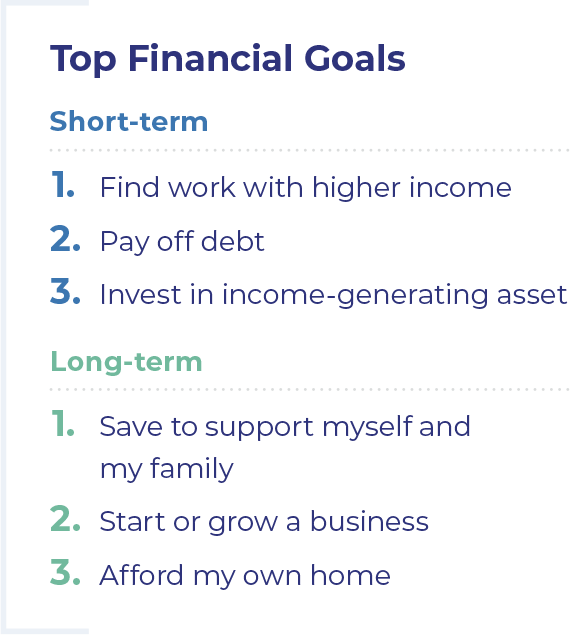


"Saving for my daughter’s education is a top priority. I want her to get the best education that I couldn’t have."
– Delivery driver, South Africa
The case for financial health solutions
Despite recent hardships, over time we expect continued growth in financial tools to support gig workers. The South Africa Spotlight provides some early insights on how platforms and financial service providers can best serve this emerging digital workforce.
Survey Methodology
Flourish Ventures partnered with research firm 60 Decibels and gig worker startups FlexClub and Picup to conduct an online survey of 605 gig workers from June 21-28, 2020. Of these respondents, there were 425 e-hailing drivers and 180 delivery workers. Underlying data can be viewed here.
Authors: Arjuna Costa, Stella Klemperer, Ameya Upadhyay